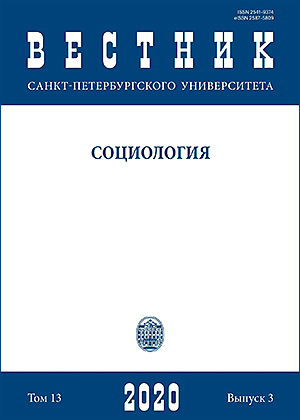Line managers as a socio-professional group
DOI:
https://doi.org/10.21638/spbu12.2020.302Abstract
The article is dedicated to the analysis of line managers’ role and position in modern Russian business society, as well as the membership of line managers in the socio — professional group of managers. Line managers were considered as the owners of specific capital (physical, human, social and administrative), distinctive for managers’ group. The author focuses on administrative capital as the most important management authority indicator. The empirical part of the work was based on the results of a standardized survey of 1116 line managers in 400 organizations from 11 industries. The results indicated that modern Russian managers have high levels of physical, human, social capital, and, moreover, quite a high level of administrative capital that is close to middle and top levels. Line managers have significant authority in terms of control, organization, and planning, as well as fairly high power in HR and finances compared to the results of previous studies. The results demonstrated the evolution of a line manager from supervisor to a full-fledged manager with a higher level of education, salary, authority, and social status. Therefore, line managers can be assigned to the socio-professional group of managers and line managers should be included in research on social and managerial topics. Moreover, they should be investigated as an independent phenomenon. Line managers can become a fundamental potential in the struggle for a competitive advantage during a crisis and an unstable economy, they deserve attention from both the scientific and business sphere.
Keywords:
line managers, socio-professional group, day-to-day practices, dministrative capital, administrative capital, management practices
Downloads
References
References
Downloads
Published
How to Cite
Issue
Section
License
Articles of "Vestnik of Saint Petersburg University. Sociology" are open access distributed under the terms of the License Agreement with Saint Petersburg State University, which permits to the authors unrestricted distribution and self-archiving free of charge.




